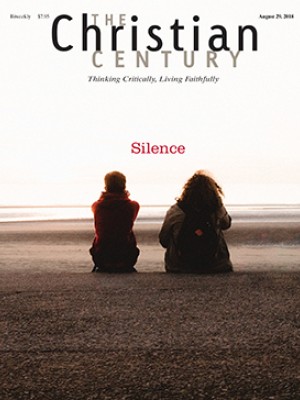Indonesian anti-terrorism law responds to church attacks but worries human rights groups
The anti-terror law expands the power of Indonesia's military and police.

Weeks after a Muslim family committed suicide attacks on churches in the city of Surabaya, Indonesia, the country passed a law intended to prevent more attacks and foster the majority-Muslim country’s tolerant culture.
President Joko Widodo—known as Jokowi, a moderate Muslim who campaigned for the presidency with an image of a clean, populist politician—responded swiftly to the recent attacks, vowing a tough crackdown on terrorists. Key to that was calling for the antiterrorism law.
Human rights groups are concerned that the bill could be used to suppress peaceful activists, and some do not support the new law.
“It is obviously an overreaction to the Surabaya attacks,” said Andreas Harsono, Indonesia researcher for Human Rights Watch. “The quick deliberation . . . allowed a definition of terrorism that could be used to target peaceful political activities of indigenous groups, environmental advocates, and religious or political organizations.”
Read our latest issue or browse back issues.
Indonesia became a democracy just 20 years ago, following the strongman rule of Suharto, a general who was in power for more than three decades. Empowering the military and having a loose definition of terrorism could put too much power in the hands of those who perpetuated atrocities in the not-so-distant past, such as in Aceh, Papua, and East Timor, Harsono said.
“Indonesia has many areas with deep roots of violence and impunity,” he said.
The Surabaya attack in May, which killed 13 churchgoers and a security officer, was the deadliest terrorist attack in Indonesia since a 2002 bombing in Bali. The target then was foreign tourists. This time it was Indonesian Christians, who make up about 10 percent of the population, according to the 2010 census. Many feared that the attacks were another sign that the country’s tradition of tolerance is under threat.
“Indonesia prides itself on its tradition of moderation, but intolerance is growing in a way that is making some fear for their hard-won democracy,” said Sidney Jones, director of the Institute for Policy Analysis of Conflict, based in Jakarta.
[When Jokowi ran for governor of Jakarta in 2012, his running mate was a Christian: Basuki Tjahaja Purnama, known by his Chinese nickname, Ahok. After Jokowi became president in 2014, Ahok served as governor until he was accused of blasphemy—a move seen as an effort to remove him from power. He was sentenced to two years in prison in May 2017, prompting concerns for protecting democratic principles in the nation. The person who altered a video of Ahok speaking to make it look like he insulted the Qur’an was also convicted, in his case of violating information technology laws, as reported by Reuters. Despite that, in March Indonesia’s Supreme Court rejected Ahok’s appeal to review the conviction.]
The new antiterror law expands the power of Indonesia’s military and police to take actions against potential terrorists and those spreading radical ideology. Under the law, the Indonesian National Police can conduct preemptive arrests and detain people for being members of a group declared a terrorist organization. The law also expands the role of the Indonesian armed forces in domestic security.
Government forces have used their expanded power under the new bill to arrest dozens of suspected terrorists across the country. In June, Aman Abdurrahman, an Indonesian recruiter for the Islamic State, was sentenced to death on charges of inspiring the Surabaya bombers. The country last conducted a terror-related execution a decade ago. Days later, the police said they foiled two planned terrorist attacks, killing three suspects.
Jokowi has worked tirelessly to brandish his Islamic credentials while also tackling the rise of right-wing Islamism, which he has called anti-Indonesian. Last year he issued a government regulation that expands the power of the Ministry of Law and Human Rights to disband groups that have ideologies deemed threats to national security and unity.
“President Widodo promoted the importance of a stronger state capacity to respond to radicalism,” said Rafiqa Qurrata A’yun, a lecturer in the department of criminal law at the University of Indonesia.
Some believe that the new law mostly addresses the concerns of human rights groups but worry about other shortcomings.
“The passed law seems to be more receptive to human rights principles compared to the first draft bill,” said Abdil Mughis Mudhoffir, a Ph.D. candidate in politics at the University of Melbourne’s Asia Institute. “Unfortunately, this new law still promotes the security approach that will not be effective and [will be] even counterproductive in addressing religious radicalism.” —Religion News Service
FOLLOWING UP (Updated February 20, 2019): Basuki “Ahok” Tjahaja Purnama, an Indonesian Christian and former governor of Jakarta, was released from a paramilitary police prison on January 24. He had spent nearly two years incarcerated for blasphemy charges, with his appeals denied even though a person had been convicted of altering a video so that Ahok appeared to be insulting the Qur’an.
A version of this article, which was edited, appears in the print edition under the title “Indonesia antiterrorism law responds to church attacks, worries human rights groups.’”





